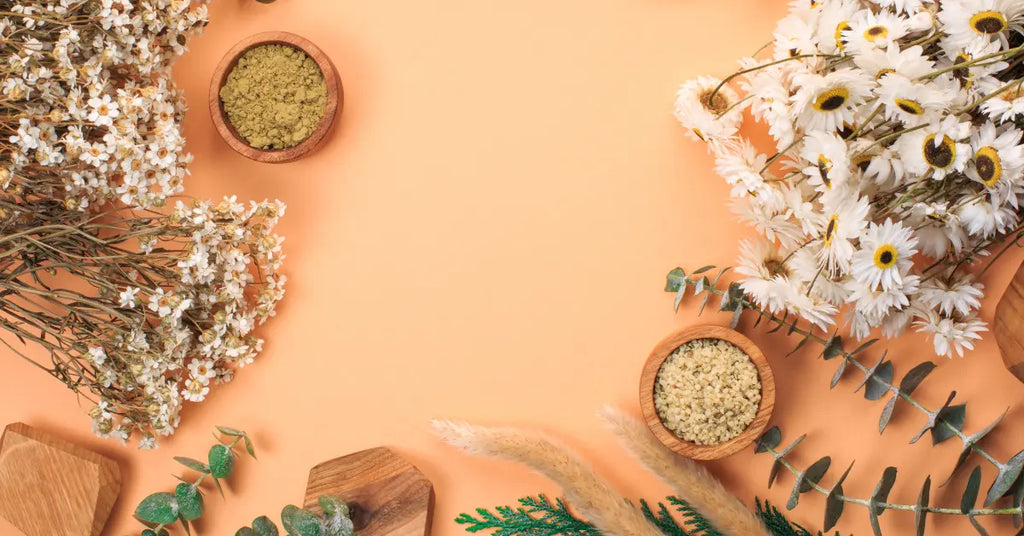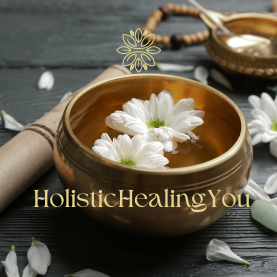
The Healing Power of Essential Oils: How to Use Them for Wellness

In today’s fast-paced world, the search for natural, holistic wellness solutions is on the rise. More and more people are turning to essential oils for their powerful healing benefits. These concentrated plant extracts have been used for centuries to treat various physical and emotional ailments, offering a natural alternative to synthetic medications and treatments.
Essential oils, derived from flowers, leaves, bark, and other plant parts, carry the plant's therapeutic properties, which are believed to provide a wide range of health benefits. Whether you're looking to reduce stress, relieve pain, enhance sleep, or improve your skin, essential oils can be an effective, all-natural solution.
In this blog post, we will explore the healing power of essential oils and guide you on how to incorporate them into your wellness routine for better health, balance, and vitality.
What Are Essential Oils?
Essential oils are highly concentrated plant extracts that capture the natural fragrance and therapeutic properties of the plant from which they are derived. These oils are typically extracted through methods like steam distillation or cold-pressing, depending on the type of plant. Each essential oil has a unique composition and aroma that delivers specific therapeutic benefits.
Essential oils can be used in various ways—through direct inhalation, topical application, or diffusing in the air. When used properly, they can support the body’s natural healing abilities and promote a sense of well-being.
The Healing Benefits of Essential Oils
Essential oils are renowned for their diverse healing properties. Here are just a few of the benefits you can expect when using essential oils as part of your wellness routine:
1. Stress Relief and Relaxation
One of the most common reasons people turn to essential oils is for stress and anxiety relief. Essential oils such as lavender, chamomile, and bergamot are well-known for their calming and relaxing properties. They can help reduce feelings of stress, calm the nervous system, and promote relaxation, making them ideal for those who struggle with anxiety or stress-related disorders.
- Lavender oil: Lavender is widely considered the "go-to" oil for relaxation. It has been shown to lower heart rate and blood pressure, making it a natural remedy for stress relief. Diffusing lavender or using it in a bath can provide instant relaxation and promote restful sleep.
- Bergamot oil: This citrus oil is known for its mood-enhancing properties. It helps reduce feelings of tension and anxiety, and it can even improve your overall sense of emotional balance.
2. Improving Sleep Quality
Essential oils can also play a vital role in improving sleep quality. Poor sleep can affect your physical health, mental clarity, and emotional well-being. Oils such as lavender, cedarwood, and ylang-ylang are often used to help individuals who struggle with insomnia or restless sleep.
- Lavender oil: As mentioned earlier, lavender is often used to enhance sleep. It’s well-known for its calming properties, making it one of the best oils to use before bedtime. Diffusing lavender oil or adding a few drops to your pillow can help promote deeper, more restful sleep.
- Cedarwood oil: This earthy-scented oil has a soothing effect on the nervous system, helping you relax and unwind before bed.
3. Pain Relief and Muscle Relaxation
Essential oils can also provide natural pain relief. Many oils, including peppermint, eucalyptus, and rosemary, have analgesic properties that can help reduce pain and inflammation in the body. Whether you're dealing with muscle aches, joint pain, or headaches, essential oils can be a soothing and effective remedy.
- Peppermint oil: This oil is often used for headaches and tension relief. Its cooling properties can help soothe sore muscles and relieve tension. Simply dilute peppermint oil with a carrier oil and massage it into your temples or sore muscles for relief.
- Eucalyptus oil: Known for its anti-inflammatory and analgesic properties, eucalyptus oil is effective in alleviating pain caused by conditions such as arthritis, muscle strain, or even headaches. It also promotes circulation and can help ease respiratory conditions like asthma and sinus congestion.
4. Boosting Immunity
Essential oils have antibacterial, antiviral, and antifungal properties that can help boost the immune system and protect the body against illness. Oils like tea tree, eucalyptus, and oregano are known for their powerful immune-boosting benefits.
- Tea tree oil: Tea tree oil has natural antibacterial and antifungal properties, making it an excellent oil for supporting the immune system and fighting off infections. It can be used to disinfect the air, clean surfaces, or even used topically to treat skin conditions like acne.
- Oregano oil: Oregano oil is one of the most potent essential oils for fighting infections. It has antiviral and antibacterial properties, making it a powerful ally in boosting the immune system, especially during flu season.
5. Skin Care and Beauty
Essential oils can also enhance your skincare routine. Many essential oils are used for their ability to balance oil production, reduce inflammation, and improve skin texture. Oils like tea tree, frankincense, and rosehip are popular for their skin-healing properties.
- Tea tree oil: Tea tree oil is known for its ability to treat acne and skin irritations. Its antibacterial properties make it an excellent remedy for pimples, blackheads, and other skin blemishes.
- Frankincense oil: Frankincense oil is revered for its anti-aging properties. It helps promote skin regeneration, reduces wrinkles, and promotes a youthful complexion.
- Rosehip oil: Rich in antioxidants and essential fatty acids, rosehip oil is excellent for moisturizing the skin and reducing the appearance of scars and fine lines.
How to Use Essential Oils for Wellness
Now that you’re familiar with the healing benefits of essential oils, it’s important to know how to use them safely and effectively. Here are some popular ways to incorporate essential oils into your wellness routine:
1. Aromatherapy (Diffusion)
One of the simplest ways to enjoy the therapeutic benefits of essential oils is through aromatherapy. Using a diffuser, you can disperse essential oils into the air, creating an environment filled with healing aromas. This is a great option for promoting relaxation, improving mood, or purifying the air in your home.
- Add a few drops of your favorite essential oil (or a blend of oils) into a diffuser.
- Let the diffuser run for about 30 minutes to an hour to fill the room with calming or invigorating scents.
2. Topical Application
Essential oils can be applied directly to the skin, but it's essential to dilute them with a carrier oil, such as coconut oil, almond oil, or jojoba oil, to avoid irritation. Once diluted, you can apply essential oils to targeted areas like sore muscles, temples, or pulse points.
- For muscle pain: Dilute peppermint, lavender, or eucalyptus oil with a carrier oil and massage it into the affected area.
- For skin issues: Tea tree oil is great for acne when applied directly to the affected area, but always dilute it first.
3. Bath Soak
Adding essential oils to your bath water is a luxurious way to indulge in aromatherapy while benefiting from the oils’ healing properties. Simply add 5-10 drops of essential oil to your bathwater, or mix it with Epsom salts before adding it to your tub.
- Relaxing bath: Add lavender, chamomile, or frankincense oils for a calming soak.
- Invigorating bath: Add citrus oils like lemon, orange, or grapefruit to uplift your spirits and energize your body.
4. Inhalation
Inhaling essential oils is another quick and effective way to enjoy their benefits. You can do this by placing a few drops of essential oil on a cotton ball, tissue, or handkerchief and inhaling the aroma deeply. Alternatively, you can inhale directly from the bottle.
- For stress relief: Inhale lavender, chamomile, or bergamot oil for instant calm.
- For energy: Inhale peppermint, eucalyptus, or citrus oils to refresh and rejuvenate your mind.
Conclusion
Essential oils offer a natural, holistic approach to improving your overall well-being. Whether you're seeking stress relief, better sleep, pain management, or enhanced beauty, essential oils provide a wide range of benefits for both your physical and emotional health.
With their wide variety of uses and therapeutic properties, essential oils can easily become an essential part of your wellness routine. From diffusing calming aromas to using them in skincare and muscle relief, these plant-based remedies can improve your quality of life in many ways.
As with any new wellness practice, it’s important to start slow, test how your body responds to each oil, and always use high-quality, pure essential oils. By integrating essential oils into your daily routine, you’ll be able to experience their profound healing benefits and enjoy a healthier, more balanced life.
In Same Category
- Unlocking the Healing Powers of Quartz Geodes for Wellness - quartz healing crystals
- The Top 5 Essential Oils for Stress Relief: Natural Solutions for Relaxation
- How to Use Crystals for Healing: A Beginner’s Guide
- The Healing Power of Essential Oils: How to Use Them for Wellness
- Top 5 Holistic Healing Stones and Their Powerful Benefits for Mind and Body
 GBP
GBP





